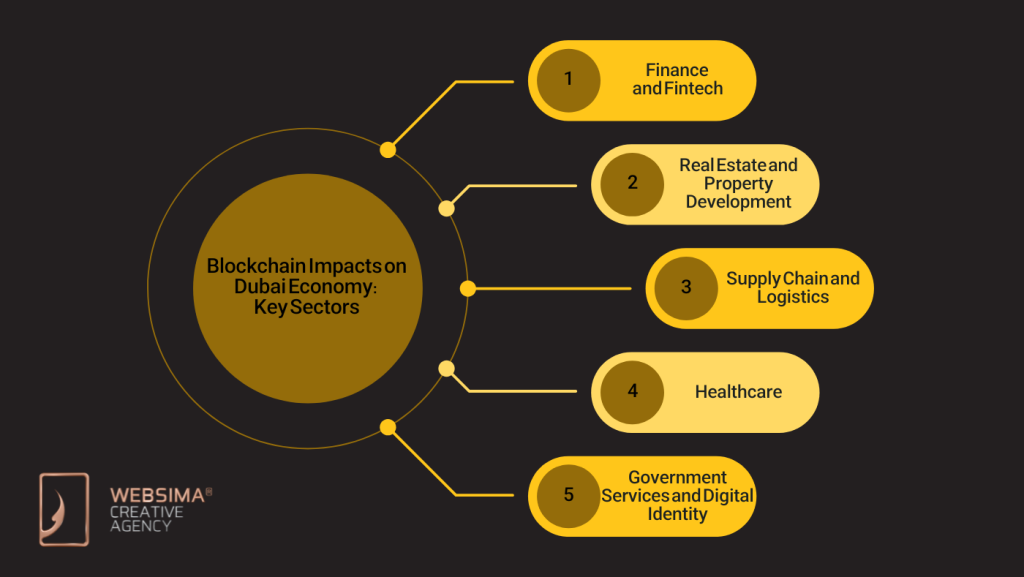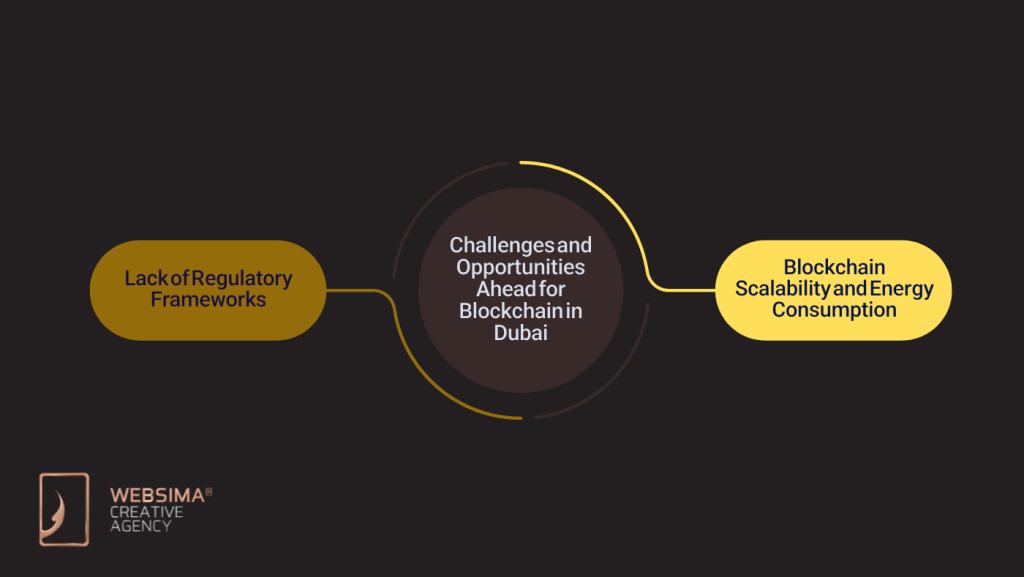Dubai has long been recognized as a hub for innovation and technology, and blockchain in Dubai is no exception. With its ambitious plans to become a global leader in digital technologies, Dubai is leveraging blockchain to revolutionize various sectors, including finance, real estate, healthcare, and logistics. The UAE government has set the vision for blockchain in Dubai through initiatives like the Dubai Blockchain Strategy, aiming to make the city the first government in the world kin order to fully operate on blockchain technology by 2025.
From Dubai to the Blockchain – A $1B Leap Forward ️
After President-elect Donald Trump’s $20B data center announcement with @DAMACOfficial, the Emirati billionaire @HussainSajwani-backed real estate giant is now bringing $1 BILLION worth of assets – real estate, hospitality,… pic.twitter.com/7lKpkHZNm5
— C H L O É (@chloe__1606) January 11, 2025
The Blockchain impacts on Dubai’s economy are profound, enabling greater transparency, efficiency, and security. As industries worldwide increasingly adopt blockchain, Dubai stands at the forefront of this transformation, positioning itself as a key player in the global digital economy.
In this article, we explore how blockchain technology is changing the Dubai economy, with a focus on the sectors driving innovation and economic growth.
Blockchain in Dubai: A Vision for Digital Transformation
Blockchain in Dubai is not just a passing trend—it is an integral part of the city’s broader vision for digital transformation. The UAE government has embraced blockchain in order to modernize its operations and provide better services to residents and businesses. Key initiatives like the Dubai Blockchain Strategy are designed to integrate blockchain across various government functions, making the city more transparent, efficient, and business-friendly.
We launched the Dubai Metaverse Strategy today, which aims to foster innovation in new technology. Dubai is home to over 1,000 companies operating in the metaverse and blockchain sector, which contributes $500 million to our national economy. pic.twitter.com/J1XRmd2ub3
— Hamdan bin Mohammed (@HamdanMohammed) July 18, 2022
One of the most prominent projects in Dubai’s blockchain initiatives is the Dubai Land Department, which uses blockchain technology to streamline real estate transactions. This move has already enhanced the Dubai economy by reducing fraud, improving transparency, and lowering transaction costs. Similarly, the Dubai International Financial Centre (DIFC) has launched a regulatory framework that supports blockchain-based financial services, encouraging investment and fostering innovation in the fintech space.
Blockchain’s impact on Dubai’s economy is far-reaching, creating new opportunities and transforming existing business models.
Blockchain Impacts on Dubai Economy: Key Sectors
Several key sectors in Dubai’s economy are already feeling the effects of blockchain technology, driving efficiency, security, and transparency.

1. Finance and Fintech
The financial sector is one of the most significant beneficiaries of blockchain in Dubai. The adoption of blockchain in financial services, particularly through decentralized finance (DeFi) and cryptocurrency platforms, is transforming Dubai into a global fintech hub. The Dubai International Financial Centre (DIFC) has launched regulations that support blockchain-based financial services, creating an attractive environment for blockchain startups and attracting global investors.
Blockchain’s impact on Dubai’s economy in this sector is twofold: it promotes financial inclusion by offering secure and transparent alternatives to traditional banking, and it enhances the efficiency of cross-border payments and transactions. Moreover, blockchain technology can reduce operational costs for financial institutions, opening the door to faster and cheaper international payments.
2. Real Estate and Property Development
Dubai’s real estate sector is embracing blockchain for its ability to increase transparency and efficiency. One of the blockchain technology’s roles in the Dubai real estate market is helping to streamline property transactions by providing an immutable record of ownership, making the entire process more secure and less susceptible to fraud.
Blockchain in Dubai also facilitates fractional ownership of real estate, allowing people to invest in properties through tokenization. This opens up new opportunities for small investors and broadens access to real estate investments. Blockchain’s impact on Dubai’s economy in this sector is profound, as it drives both foreign investment and local market growth while enhancing the global reputation of Dubai’s real estate market.
3. Supply Chain and Logistics
Dubai is a major international trading hub, and blockchain technology is revolutionizing Dubai’s trade, logistics and supply chain management. Companies are using blockchain to track goods and shipments across the supply chain in real-time, enhancing transparency and reducing fraud. This is particularly important in sectors like retail, pharmaceuticals, and manufacturing, where tracking and verifying the provenance of goods is crucial.
Blockchain’s impact on Dubai’s economy in logistics is also reflected in reduced operational costs, faster processing times, and enhanced customer trust. The Dubai Trade platform, for instance, leverages blockchain to optimize customs processes and reduce the paperwork burden for businesses, contributing to a more efficient economy.
4. Healthcare
Blockchain in Dubai’s healthcare industry is helping to address long-standing challenges related to data security and patient privacy. The government has been exploring blockchain as a tool to store and manage medical records, providing patients with more control over their health data while ensuring it is secure and easily accessible by authorized professionals.
The introduction of blockchain in healthcare can also streamline insurance claims, reducing fraud and administrative overhead. By improving data transparency, the blockchain’s impact on Dubai’s economy in healthcare is paving the way for more efficient, cost-effective services that benefit both providers and patients.
5. Government Services and Digital Identity
Dubai’s government is a trailblazer in adopting blockchain technology to improve public services. The Dubai Blockchain Strategy aims to digitize all government services, offering citizens and residents a more seamless, secure, and efficient experience. The Dubai government is exploring blockchain-based digital identities, allowing individuals to control their personal data while interacting with government services in a secure, transparent manner.
This transition to blockchain offers not only cost savings for the government but also enhances citizen trust by providing transparent, immutable records of interactions. Blockchain’s impact on Dubai’s economy is evident in this sector, as it leads to more efficient public service delivery and opens new avenues for digital governance.
How Blockchain is Driving Economic Diversification in Dubai
A key goal of Dubai’s leadership is economic diversification, reducing the city’s reliance on oil and gas. Blockchain plays a crucial role in this effort by driving innovation in new industries like fintech, healthtech, and logistics. The UAE government has invested heavily in blockchain as a foundation for the future economy, with the aim to create a more resilient and diverse economic ecosystem.
By fostering a thriving blockchain ecosystem in Dubai, the government is attracting a growing number of international businesses, investors, and startups, further enhancing its status as a global innovation hub. Blockchain technology is not just changing existing industries but also creating new business opportunities that have the potential to generate jobs, attract talent, and contribute to Dubai’s economy in the long term.
Challenges and Opportunities Ahead for Blockchain in Dubai

While the potential benefits of blockchain in Dubai are clear, there are still challenges to overcome. Regulatory frameworks around blockchain and cryptocurrency need to be carefully designed in order to balance innovation with security. Ensuring the scalability of blockchain networks and addressing concerns about energy consumption are additional hurdles that need attention.
However, these challenges present opportunities for Dubai’s economy to innovate further. As the regulatory landscape matures and technology evolves, Dubai is poised to continue its leadership in blockchain innovation, attracting investment, businesses, and talent from around the world. The government’s proactive stance on blockchain ensures that the city is well-positioned to harness the full potential of this transformative technology.
Conclusion: Blockchain’s Transformative Role in Dubai’s Economy
In conclusion, blockchain technology is already having a significant impact on Dubai’s economy, driving innovation across key sectors like finance, real estate, logistics, healthcare, and government services. The city’s efforts to integrate blockchain into its infrastructure and regulatory frameworks are positioning it as a global leader in digital transformation.
The Blockchain impact on Dubai’s economy is poised to continue growing, as more sectors adopt blockchain-based solutions that increase efficiency, transparency, and security.
Websima, as the leading blockchain service provider in Dubai, is more than happy to help, if you are planning to start a blockchain-based business in Dubai. Blockchain, crypto and web3 web and website development, smart contract programming and development, Blockchain, Web3 and crypto company establishment are just a few out of many services that we provide. Feel free to contact us to book for a free consultation meeting with our talented team.





